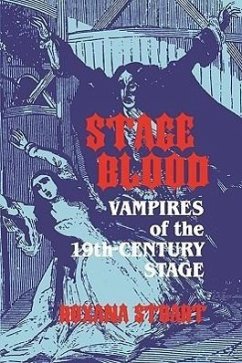Vampires, since they found a home in the psyche of the West 250 years ago, have always been objects of fascination for popular audiences. Recently they have gained the attention of scholars in the fields of popular culture, literary history, folklore, and cultural anthropology. Now reduced to a cliche and figure of fun, the vampire originally took on its characteristics in the public imagination from a series of plays written and performed by some of the most important figures in 19th-century theatre: Dion Boucicault, Eugene Scribe, Alexandre Dumas pere, Gilbert and Sullivan, Charles Nodier, T.P. Cooke, Marie Dorval, and J.R. Planche. Roxana Stuart's study approaches the subject primarily from the viewpoint of literary criticism but also includes production history, providing the reader with a useful look at theatre practices, as well as social and psychological insights into popular taste and imagination as reflected in the changing persona with which each period and culture endows the vampire, from the relative innocence of the Romantics to the evolving patterns of sadism, misogyny, and xenophobia of the end of the century.
Hinweis: Dieser Artikel kann nur an eine deutsche Lieferadresse ausgeliefert werden.
Hinweis: Dieser Artikel kann nur an eine deutsche Lieferadresse ausgeliefert werden.








